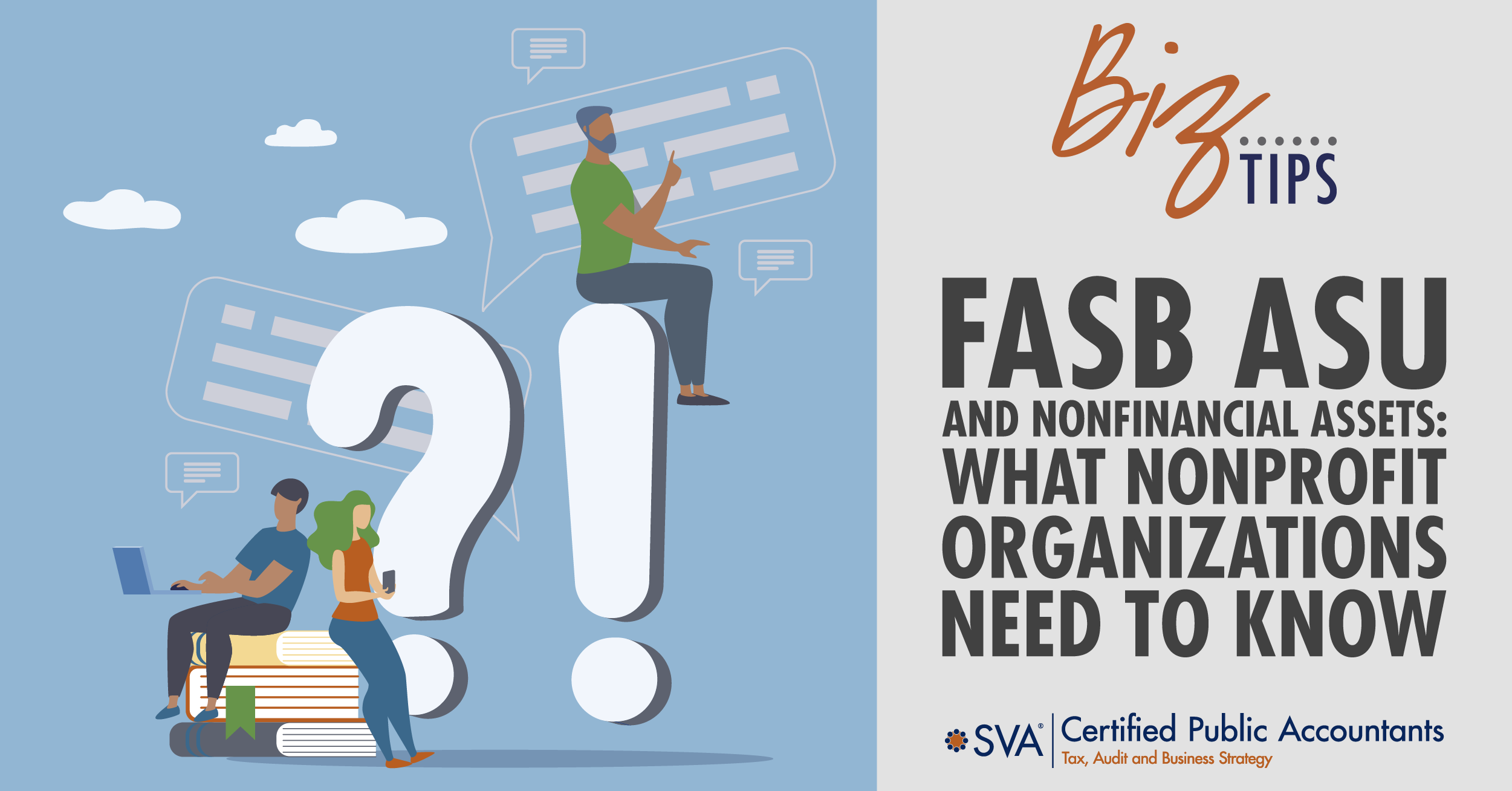ASU 2020-07
The Financial Accounting Standards Board (FASB) issued the Accounting Standards Update (ASU) 2020-07 in September 2020. This topic was specifically targeted at nonprofit entities (Topic 958). It was supposed to increase transparency related to nonfinancial assets.
Specifically, it asked nonprofits to provide more information about nonfinancial assets received and recognized by an entity. The ultimate goal is to address transparency concerns and ensure nonfinancial assets are properly measured and accounted for within a not-for-profit organization’s financial documents.
While the ASU did not change how an asset was recorded, it did change disclosure requirements related to what the asset is and how it was used within an organization.
The ASU was created in 2020 but was not effective until reporting periods starting after June 15, 2021. That means it applies to any nonprofit with a year-end of June 30, 2022 or later. The ASU is also retroactive.
So, why does ASU 2020-07 matter for nonprofits? There will be some reporting requirement changes related to disclosure for most entities. We address the highlights below.
Defining Nonfinancial Assets
The definition of nonfinancial assets has not changed. As a result, most nonprofits already know what kind of assets are affected by these new disclosure and reporting requirements.
As a review, donations of the following are considered “nonfinancial assets,” so ASU 2020-07 specifically applies to:
- Radio, social media, television, and streaming advertising
- Physical space (such as office space or event areas)
- Raffle items
- Travel expenses (i.e., airline tickets, hotels, gas cards, etc.)
- Personal protective equipment
- Commodities
- Pharmaceuticals
- IT services
- Professional services (such as legal services or accounting services)
- Utility payments or services
In general, if the item or service has a dollar value but the nonprofit does not have to pay for that dollar value (or there is a price reduction), that is a nonfinancial asset.
New Presentation Requirements for Nonfinancial Assets
All nonfinancial assets must be segregated from financial assets. The segregation must be included on each financial statement, including a statement of activities and a statement of functional expenses.
While ASU 2020-07 does not technically require this segregation, it makes sense to implement this separation to ensure transparency. Because ASU 2020-07 requires separate nonfinancial asset reporting, it makes sense to separate any contribution line item into “nonfinancial contributions” and “financial contributions.”
Organizations might also want to take this separation one step further to divide contributions into categories such as:
- Financial contributions (including donations and grants)
- Donated services
- Donated equipment
- Donated travel
- Other nonfinancial contributions
Presenting and tracking assets in this way will allow for much easier disclosure that is in line with ASU 2020-07.
Disclosure Requirements in ASU 2020-07
Nonprofit organizations are required to provide enhanced disclosures related to nonfinancial assets. These disclosures can be included on a relatively simple, ongoing chart for each reporting period.
- How each asset is segregated on financial documents
- The amount of revenue recognized for each item (book value or market value)
- How the donation was used
- Whether there are any donor restrictions for the asset
- How the asset was valued
The organization must also provide its policy related to liquidation if they intend to liquidate any donated nonfinancial asset instead of using it outright. If the organization does not have a policy on this, they need to create one.
Getting ASU 2020-07 Implementation Right
The biggest challenge for nonprofits that were not already tracking nonfinancial assets is ensuring that everything is accounted for properly. That is, having a full inventory of all nonfinancial donations is critical.
The required information about each asset also forces the organization to consider the value of the donation and how it will be used. The intent of the donor and how the asset is used should match to the greatest extent possible.
Many organizations that have started implementing the disclosure requirements under 2020-07 are finding that this type of more in-depth disclosure allows for more informative and transparent presentations to stakeholders. It also makes it easier to include these assets in financial statements as well.
For help with ASU 2020-07 implementation, or if you want to explore these requirements further, contact an accounting professional.

© 2023 CPA ContentPlus

